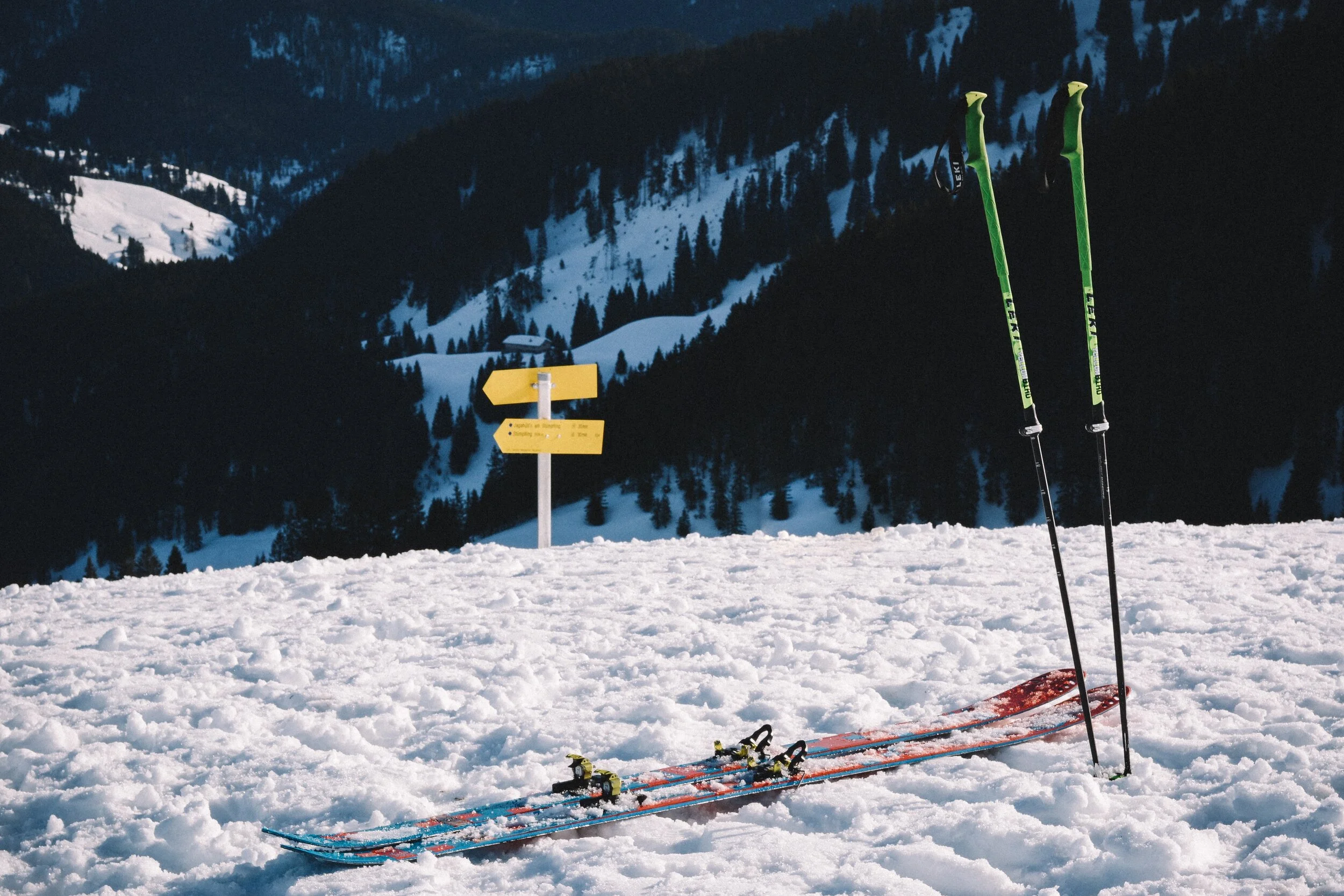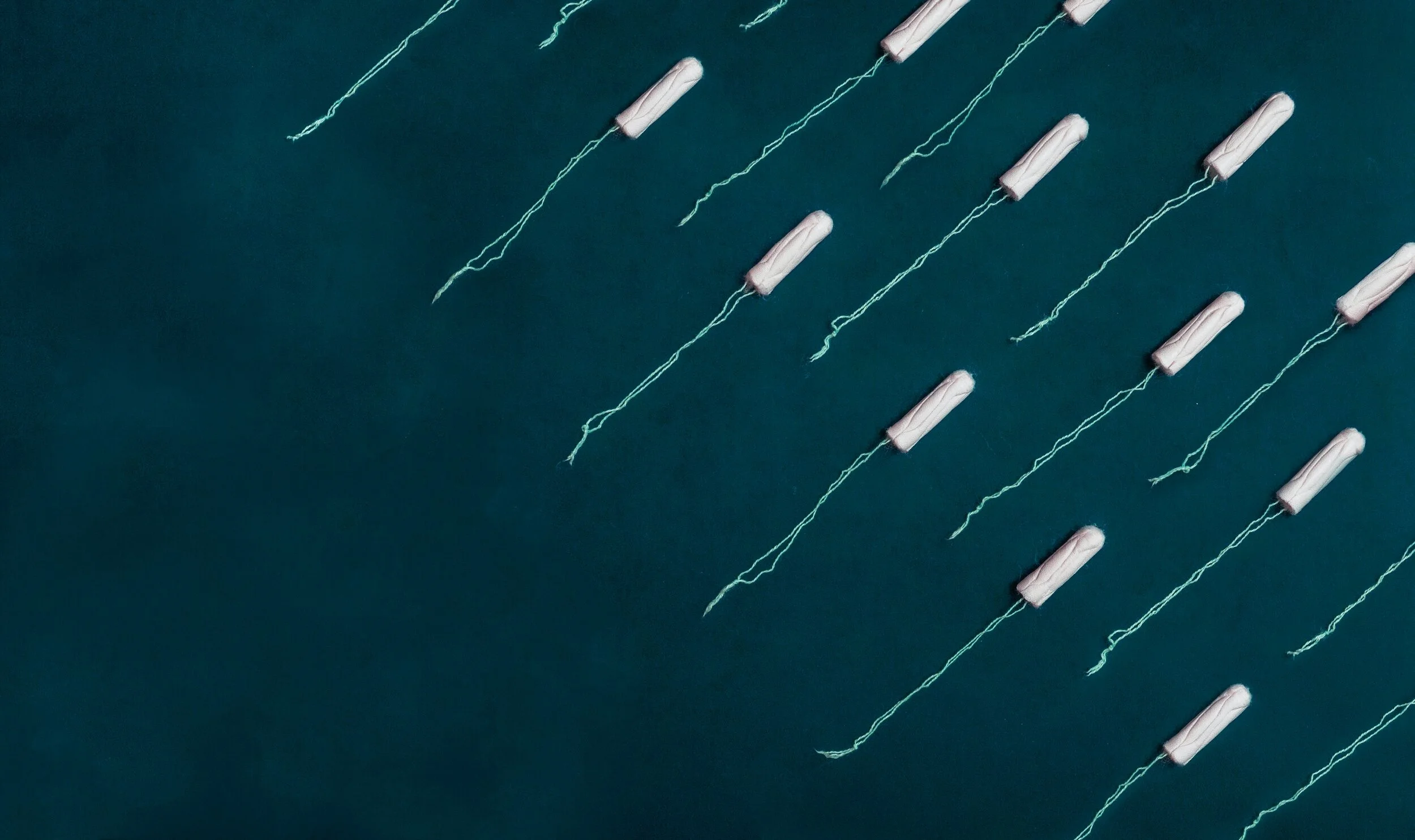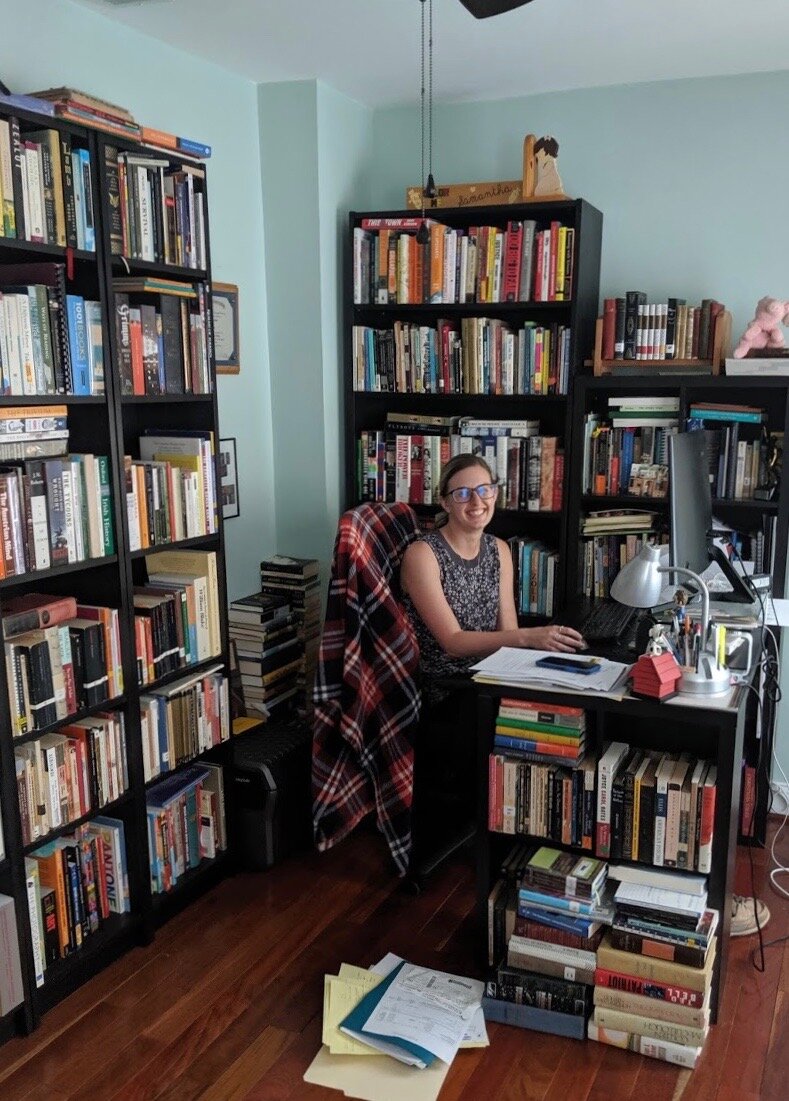The Birds and the Sea Monkeys
I learned about menstruation from sea monkeys when I was eight or nine. Since then, I haven’t given my body much thought. Maybe that time in Sicily, when I flew off my bike and skinned my knee and elbow, leaving a scar. Or perhaps when my legs sprouted hair and everyone in the sixth grade shaved before my mom let me. But now that we’re trying to have a baby, it’s all I can think about.
How high is my cervix? Is it open or closed? What about the fluid I always knew was connected to my cycle but not sure how, is it thick and stringy like egg whites or thin and sticky like Elmer’s glue? I track these things and wait. One month passes, then two. And just when I think I’ve missed it, that this time we’re there, it comes. That disappointing first drop. My period.
The sea monkeys were a gift. Someone bought me a kit for Christmas. A naked cartoon sea family of four with scales, tails, and tentacles that looked like crowns, their private parts covered by a casual arm or a crossed leg, posed on the front of the box. The woman had full lips, long lashes, and seductive eyes, two kids stood near her, one so small he barely reached her sitting torso, the other taller and looking up at the man monkey who stood confident, one hand on his hip, the other on his son’s shoulder like this is my kingdom, aren’t I lucky to have it all? I was fascinated by them, these little sea people who must have lives like mine. I stared at the box for days before filling the tank with water and pouring in the little packets. Instant life, it said. Imagine my disappointment when they turned out to be less like people and more like ugly, little, translucent centipedes.
I still watched. I watched them grow, grow from little particles to tiny red specks, to fluttering specks with tails, their bodies leaf-like with appendages that rippled and waved like a butterfly. I watched them swim behind the magnifying circles built into the tank and got a closer look. I watched them sprout eyes, eat the smelly grains of food I shook into their water, and even fight. I watched instant life.
I watched as, one day, red dots bloomed at the base of half the sea monkeys’ bodies. They were bleeding, dying. I hadn’t loved them enough—their hearts were bursting.
“Mom, mom.” I ran from the room shouting, rushing, ready to call 911.
My mom sprung from her chair, looking for a real emergency, checking me for marks.
“Not me, the sea monkeys.” I tugged her by the hand to my room.
“Oh,” she said when she saw them. “Wait here.”
After a whispered phone call, she sat me down at the kitchen table and walked me through the female body. Changes, she said, they happen to all girls, it’s how we become women. My sea monkeys weren’t dying, they were menstruating.
“Most kids your age don’t know about these things, so keep it to yourself. Let their moms tell them when the time is right.” I nodded, my brain swirling as she went on. “But Shannon knows now, so you can talk to her.”
Shannon was my best friend. My mom had already called her mom to let her know because of course I’d tell Shannon. Except, that never crossed my mind.
I didn’t want to talk to her. I didn’t want to talk to anyone. I would have never told her how our bodies would betray us. Blood was bad, a sign of horror and hurt and now it would flow from me monthly forever, or until menopause—whatever that was. And why didn’t boys have to suffer? I knew they couldn’t get pregnant, but this other stuff? Change was not my thing, and I didn’t ask for it. I didn’t sign up for this. I didn’t even really know what I was getting into, but it all sounded rather scary and painful.
During recess on Monday, Shannon grabbed my arm as the rest of our third-grade class sprinted to the jungle gym.
“I think I have it.”
“What?”
“My”—she looked side to side and whispered—“period.”
My eyes scanned her body, but she looked the same. Flat-chested and freckle-cheeked. Nothing had changed.
“What makes ya think that?”
“I just feel weird. Different. Who else do you think has it?”
“My mom said you don’t really get it until middle school, maybe fifth grade,” I said.
“I bet Melissa has it, she’s already got boobs.”
I felt bad for Melissa. She loved Selena when the rest of us were rushing to the deli outside the school to buy Spice Girl lollipops. And she had boobs, which wasn’t her fault. She was a year older than everyone else. But the Selena T-shirt she wore every day, probably because it gave her comfort, and the boobs sprouting behind it made her a target for mean jokes from the boys, and even some of the girls. Which didn’t seem fair.
The new girl, Katarina, ran over to us. “Come on, what are you guys doing?”
“We’ll be there in a second Kat.” Shannon waved her off. She dropped her head, turned on her heel, and ran back faster than she came.
“She wouldn’t understand.”
I nodded in agreement. She wouldn’t. I didn’t.
“We’ll just keep this between us. And if I get mine I’ll only tell you.”
But I thought she thought she had it? Instead, I said, “I’ll do the same.”
We swore on the “Be Frie” “st nd” split heart charms that hung around our necks.
“We better go play with the kids before they get upset.”
I followed her, a half step behind.
The next year, Shannon was in a different class. We stayed close. In fifth grade we had the same teacher again. We still shared our secret about womanhood, so when they split all the fifth-grade girls and boys into separate classrooms, Shannon’s eyes met mine. I still don’t know what they told the boys exactly, but we waited as the nurse walked in and handed out teal pamphlets with three cartoon girls on the front, their arms around each other: “Always Changing: Puberty and Stuff.” Shannon and I knew what was coming. The secret we’d kept was out. One or two other girls sat up in their chairs and we could tell they knew too.
The nurse drew a triangle on the board that was supposed to represent our vaginas, a word she never said. Or maybe it was supposed to represent the uterus, but she never used that word either. She talked about cycles, pads and tampons, even discharge. Some girls snickered and acted like they were above knowing all this, some looked scared. Shannon nodded along in a proud way. We ended with pimples, deodorant, and how to wash properly. We finished just before lunch and rushed to hide the pamphlets and free pads in our backpacks before the boys came back.
It would be three more years before I got my first period. By then, Shannon and I weren’t really friends anymore. Middle school is a good test of friendship and ours, well, it didn’t make the cut. There wasn’t a fight or anything, more of a fading away. And yet, when I noticed that first drop of blood in the locker room bathroom after eighth-grade gym class, she was still the first person I thought to tell. She got her period in the sixth grade, one of the first from our friend group, and had shrugged it off like no big deal, like this wasn’t the thing we carried between us since the third grade. I’m a woman now, whatever. Pretty much all of my friends had theirs by the time I stood, wadding toilet paper into my underwear so I could go hunt in my locker for a nickel to buy one of the extra-long scratchy pads from the rusted dispenser that probably hadn’t been used since 1979. I felt behind, but unlike the leg shaving, I didn’t want to be greeted each month by a rush of blood. I was happy to be behind this time.
My period was a thing I didn’t want. But once you get it, it’s not a thing you can un-get. At first, it’s all you can think about. Track it on a calendar or don’t, you’ll still know roughly when it should arrive. Arrive along with cramps you have to walk around and ignore, cramps girls made up to get out of gym class, cramps that made playing soccer, basketball, and softball a misery. I used to get terrible cramps until I got on the pill. Month after month, I worried about my period. Do I need to pack a pad? Should I try tampons? White pants? Definitely not, it’s probably coming soon. I worried about it—until I didn’t. It became a thing that just came. A thing I still didn’t want, until I started having sex—then it was the thing I prayed for each month.
I was paranoid about getting pregnant. All those after-school specials about teen moms scared me. I got on the pill, used condoms, and waited each month for that red sigh of relief. More than once I went with friends to buy them pregnancy tests. More than once I messed up the pill and bought my own. Always negative.
Now, after spending over a decade worrying and trying not to get pregnant, it’s weird to worry about the opposite. And each time I’m met by that familiar flow, I’m disappointed. But I also can’t help but think about those sea monkeys. I wonder whether they were actually menstruating. Don’t most sea creatures lay eggs? Google doesn’t seem to think they have a period. But back in 1998, my mom didn’t have the internet to ask—Yahoo was two years old, Ask Jeeves one, Google a newborn. Maybe she knew it wasn’t their period but took it as an opportunity to get the talk over with. My best bet was they were pregnant.
Pregnant. That’s my new obsession these days. I’ve spent too much time in the bathroom thinking about these little pets I haven’t thought about in almost two decades, fretting over those early signs of blood. Is it hard for some sea monkeys to get pregnant? Do they worry over it? I doubt it. Google says female sea monkeys can fertilize their own eggs, it’s called parthenogenesis—no male monkey needed. Do sea monkeys miscarry? Can animals that lay eggs miscarry? What about postpartum depression? These are things my friends and many other moms have overcome. Things that worry me. Is that spotting? Or maybe it’s the start of my period? What the hell’s the difference? I Google that too. Until one day, there’s no blood. No blood the next day, and the next. I try and wait a third day, but give in and run to the grocery store at lunch to get a test (keeping them on hand would certainly jinx it). And there they are. Two lines. Two beautiful, perfect lines. Just like that, everything has changed again. I’m no longer worried about my period, or myself. I’ve got someone else to worry about now.
-Samantha Schlemm
Samantha Schlemm lives in Baltimore with her husband, working as a copywriter, and studying to get her MA in creative nonfiction writing at Johns Hopkins University. Born and raised in the New Jersey Meadowlands, Samantha somehow ended up avoiding sounding like she’s a character from the Sopranos (except when it comes to saying “drawer”), but is infatuated with Bruce Springsteen. An emerging writer, she recently published a flash nonfiction essay in Sunspot Literary Journal.





















